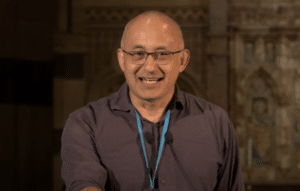
Peter Carolane
28 June 2024
Over the past 24 hours we’ve heard of the final release of Australian editor, publisher and activist Julian Assange. Hero of justice to some, reckless journalist to others, Assange has been one of the most controversial and newsworthy Australians in history. Since 2006, his website WikiLeaks has taken on governments, corporations and political organisations across the world. His activism and published leaks against the US government got him into the most trouble.
Assange’s life reads like the plot of a Tom Clancy novel, with government conspiracies being exposed, spy agencies involved, Interpol most wanted lists, sexual assault allegations in Sweden, celebrity international human rights lawyers, and a marriage conducted in secret in the Ecuadorian embassy in London.
I was also struck by how glamorous his entourage was, disembarking from their private jet in Canberra looking like they were about to attend the Oscars. It must be a very strange thing to be one of the most (in)famous people alive.
I admit, I am partly intrigued with Julian Assange because he is almost a secular saint of Melbourne’s inner-north. His family moved to Melbourne when he was a teenager, and he lived for many years around Carlton: founding WikiLeaks while living in Grattan Street opposite Melbourne Uni (his home as recently as 2009). He has become an icon around the world for freedom of the press and the fight against government corruption. He pursues his causes with a kind of religious zeal – and is often depicted as such. A mural in Berlin, depicts him as a Christlike martyr being executed by the Emperors of Western hegemony.
Parallels between Assange and Christ are several. Both have used a truth “sword” (Matthew 10:34), drawing aggressive retaliation.
Read more: Religious activists seek Pacific ties to tackle climate change
Christ was not the first persecuted truth-teller. The Bible gives many accounts of prophets who were incarcerated and even killed for speaking truth. In the ninth century BC, Hanani the seer spoke out against King Asa of Judah for relying on the King of Aram and not on the Lord. The enraged Asa threw the Hanani in prison (2 Chronicles 16:1-12). Jeremiah was also imprisoned for truth-telling about the imminent capture of Judah by the Babylonians (Jeremiah 38:1-28). In fact, there was a well-established tradition of the Israelites persecuting their own prophets. Jesus described Jerusalem as, “the descendants of those who murdered the prophets” (Matthew 23:30), anticipating his own rejection and execution.
However, while Assange was pursued for his publishing of compromising top secret truths he has deemed important, Jesus Christ was executed because he is “the truth” (John 14:6).
For those of you who find Assange an inspiration (and I know that’s not all of you), I encourage you to lift your eyes to the ultimate man of truth, who has divine sovereignty over the earthly empires. On the final day of Judgement, Jesus says, “There is nothing concealed that will not be disclosed, or hidden that will not be made known” (Luke 12:2). On that day, as John saw in his heavenly vision, Jesus will be called “Faithful and True” and he will be riding on a white horse, judging with justice, and his eyes like blazing fire. On his robe and on his thigh he will have the name written: “king of kings and lord of lords” (Revelation 19:11-16).
The Reverend Dr Peter Carolane is senior minister at Merri Creek Anglican.
This article was first published in the Merri Creek Anglican newsletter.
For more faith news, follow The Melbourne Anglican on Facebook, Twitter, or subscribe to our weekly emails.






